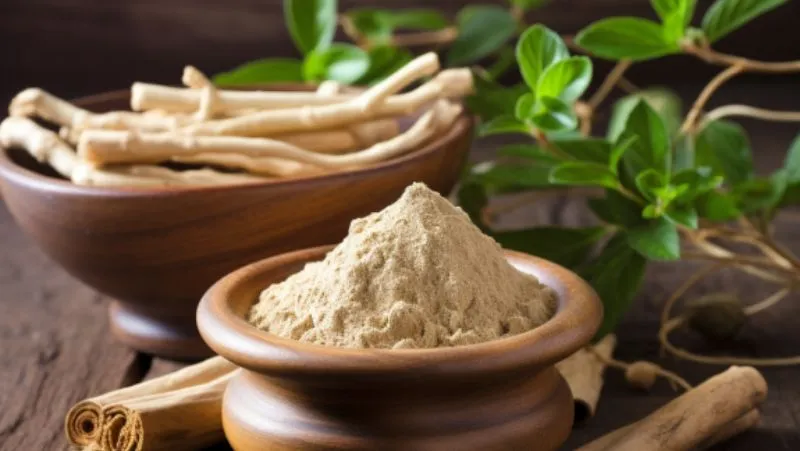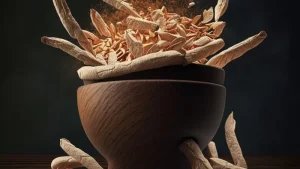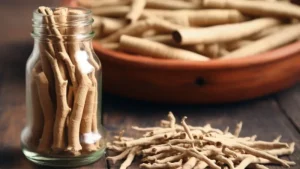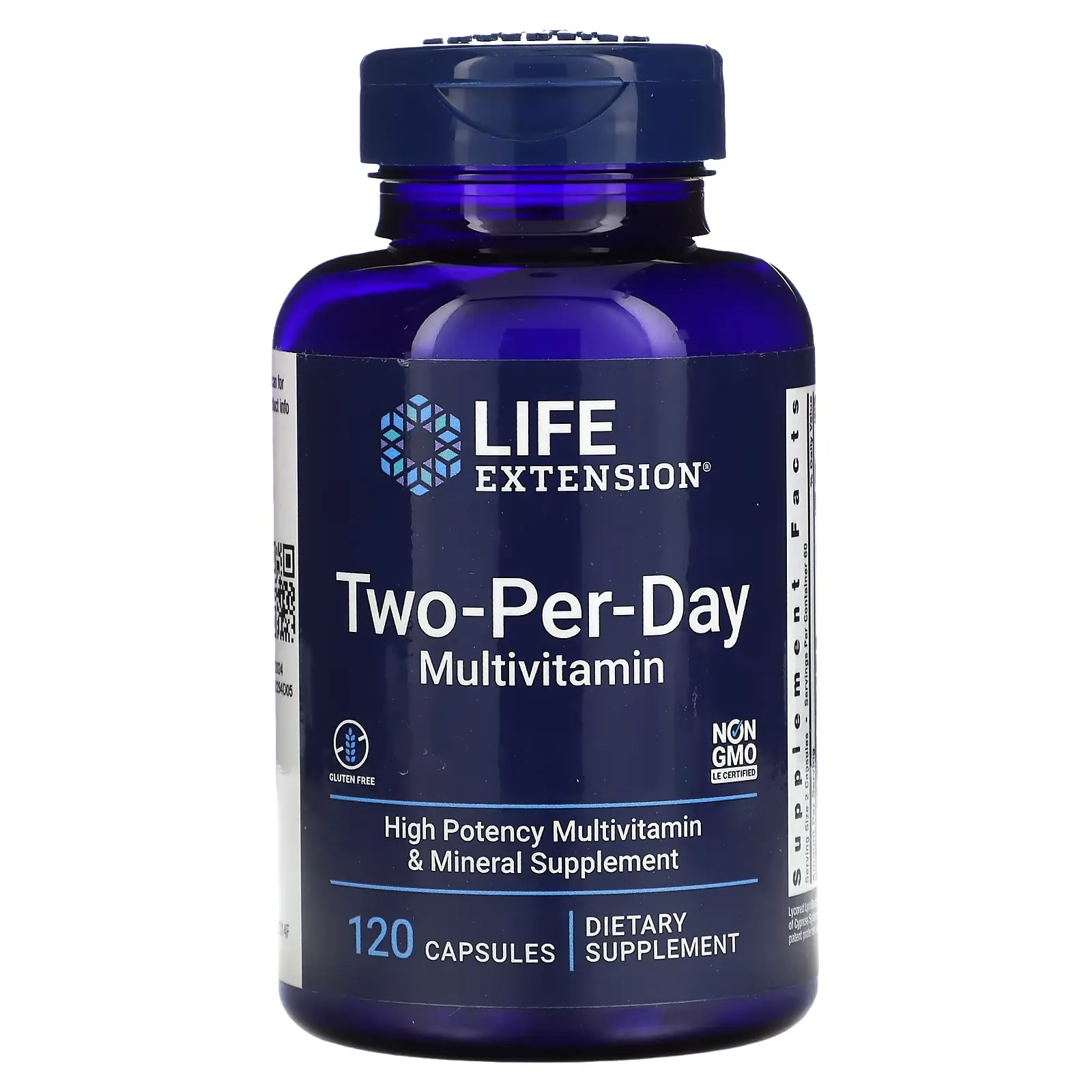Spoilers for this article
- stamina enhancement: : Theashwagandha (type of Indian cactus)It has been suggested that ingestion may improve exercise performance. It may help reduce fatigue, especially in sports requiring endurance and in daily activities.
- sexual desirePromotion of: : Theashwagandha (type of Indian cactus)has traditionally beensexual desireThe augmentation of thereproductive functionIt has been used to support recent studies, as well as improving sperm quality and quantity,testosteroneof men, such as the increase in the number ofsex functionPositive impacts on the
- Mental improvement: known as adaptogensashwagandha (type of Indian cactus)isstressand anxiety. of daily life.stressThis may help men who feel the need for emotional stability and relaxation.
RecentlytestosteroneI'm sensing a decline in theashwagandha (type of Indian cactus)Does that work?"
."muscleGood for augmentation and performance improvement.supplementAre you looking for?"
."ashwagandha (type of Indian cactus)I want to know what effect the "Mere Old Man" has on men."

This article is for those who are interested in this topic.
Recently,ashwagandha (type of Indian cactus)You may have heard the names of

Many people say it helps their health and exercise performance, especially men.
So what are the actual benefits for men, and what is the best way to consume it?

In this article,ashwagandha (type of Indian cactus)Effects of the,Male-specific needsThis section details tips for intake that respond to the
What is ashwagandha in the first place?

ashwagandha (type of Indian cactus)(scientific name: Withania somnifera Dunal) has been used for thousands of years in Ayurveda, the traditional medicine of India, to treat both physical and mental health problems.stressThe herb has been used as an effective medicine, tonic, and even aphrodisiac.
Nowadays, the effectiveness of these products has been proven by modern science through various clinical studies, and they are attracting attention.
The fruit is an evergreen shrub of the eggplant family. The name comes from the horse's (ashwa) smell (ganda).
Some say it is named after the robust vigor of horses.
▼Recommended Articles

Introduction.
ashwagandha (type of Indian cactus)is one of the herbs that has been gaining attention in the health, beauty, and sports fields in recent years, but how true is it?

In this article,ashwagandha (type of Indian cactus)will delve into the background and history of the product and its use in Ayurvedic medicine.
Background and History of Ashwagandha
ashwagandha (type of Indian cactus)(Withania somnifera) is,native to South Asiaplants and have been used in traditional medicine for thousands of years.

The name of this herb is Sanskrit.The smell of horse."and it is named for the scent of its roots, which resembles the smell of a horse.
- Main Ingredients: : Theashwagandha (type of Indian cactus)contains a powerful antioxidant called withaferin A.
- ancient document written in ancient times: In the literature of B.C.,ashwagandha (type of Indian cactus)s various uses and benefits are described, indicating that it has long been highly regarded as an herb that contributes to health and longevity.
Use in Ayurvedic medicine
Ayurveda is,Traditional Indian MedicineIn,Knowledge of Life."means "a person who is a member of a group of people who are not members of a group.

ashwagandha (type of Indian cactus)has played a very important role in this medicine.
Use of Ashwagandha in Ayurvedic Medicine
- Restoration of balance: In Ayurvedic medicine, the body'sDosha (dynasty of India, approx. 180-68 BCE)(life energy) balance.ashwagandha (type of Indian cactus)is used as an herb to support this.
- stresscounter-measure: : Theashwagandha (type of Indian cactus)school (e.g. of ikebana)adaptogenHe is also known asstressand anxiety tolerance.
- tonic: : Theashwagandha (type of Indian cactus)strengthens the body,immunityMany traditionalrecipeThe new system has been incorporated into the
While further research is being conducted,ashwagandha (type of Indian cactus)The scientific rationale for these traditional uses of the

For example, in the study by Chandrasekhar et al. (2012) below,ashwagandha (type of Indian cactus)anti-stressClear evidence of effectiveness was provided1The following is a list of the most common problems with the
Main Effects and Benefits
Enhancing Testosterone: Hormonal Balance and Its Effects
ashwagandha (type of Indian cactus)isof male hormones.testosteroneIt is said to be effective in improving the
Improved reproductive function: research findings on sperm quality and quantity
According to the study,ashwagandha (type of Indian cactus)The intake ofSperm movement, quantity, and qualityIt has been shown to improve the

This is hopeful information for men with fertility problems.

Stress reduction: effects and mechanisms as adaptogens
ashwagandha (type of Indian cactus)To,stressThe plant is effective in reducing theadaptogenIt is classified as
This is because the bodystressIt is defined as something that helps you adapt to3The following is a list of the most common problems with the

Muscle mass and strength gains: athletic performance gains and related research
ashwagandha (type of Indian cactus)school (e.g. of ikebana)muscleand support the growth of the company,muscle strengthIt has been shown to help increase the
It has been shown to have beneficial effects, especially for resistance trainers4The following is a list of the most common problems with the

Antioxidant action: Reduction of oxidative stress and maintenance of cellular health
ashwagandha (type of Indian cactus)has a strongAntioxidant ingredientswhich protects the body's cells and slows down the aging process.

Improved cognitive function: effects on memory and concentration
In some studies,ashwagandha (type of Indian cactus)andmemoryand caution,(powers of) concentrationIt has been suggested that this may improve5The following is a list of the most common problems with the


Inflammation reduction: modulating the inflammatory response and contributing to health
ashwagandha (type of Indian cactus)has been reported to inhibit inflammatory responses in the body.
This may help reduce the risk of chronic illness and disease.

Reducing the Risk of Heart Disease: Effects on the Cardiovascular System and Related Research
ashwagandha (type of Indian cactus)has been shown in some studies to reduce the risk of heart disease.
For this,Cholesterol and trioxidesIt is believed to be involved in the effect of lowering the value of6The following is a list of the most common problems with the
Weight Management and Fat Burning: Impact on Metabolism and Weight Loss
ashwagandha (type of Indian cactus)is believed to improve the body's metabolism and help burn fat.
This may assist in weight management and weight loss.

Improving Mood and Mental Health: Research on Antidepressant Effects and Anxiety Relief
ashwagandha (type of Indian cactus)ingestion has been reported to reduce anxiety and depression.
This is,ashwagandha (type of Indian cactus)is thought to help stabilize mood by regulating the balance of neurotransmitters7The following is a list of the most common problems with the

Precautions for ingestion
Side effects and interactions: common side effects and interactions with other supplements and medications
ashwagandha (type of Indian cactus)is generally considered safe, but for some peopleside effectmay appear.
mainside effectin order toAbdominal pain, diarrhea, vomitingGastrointestinal symptoms such as
It is also possible to use othersupplementand drugs withinteractionmust also be taken into account, especiallyBlood pressure and diabetes medicationsCaution should be exercised when using in combination with1The following is a list of the most common problems with the

Risk of Overdose: Intake Guidelines and the Dangers of Overdose
If overdose,Kidney and liverThere is a possible risk of strain on the
Avoid taking more than the recommended daily intake2The following is a list of the most common problems with the
However, in the right amount, it can be very effective as follows

Intake and recommended dosage: how to take it on a daily basis and in appropriate amounts.
In general, theashwagandha (type of Indian cactus)(at sentence-end, falling tone) indicates a confident conclusionStandard intakeis considered to range from 300 mg to 500 mg.
It is recommended that this be taken once or twice a day with meals3The following is a list of the most common problems with the

The Key to Choosing Reliable Supplements
ashwagandha (type of Indian cactus)supplementWhen choosing a,Third-party verificationIt is important to choose products that are transparent about the raw materials, manufacturing process, and quality assurance.

Considerations for long-term ingestion: Cautions for continuous ingestion and changes in effects
over a long period of timeashwagandha (type of Indian cactus)is ingested, it is recommended that periodic breaks (e.g., one month of ingestion followed by a one-week break) be taken to minimize the effects on the body.

Also, review your intake regularly, as the effect may diminish.
Summary and Outlook
Ongoing research and future possibilities for Ashwagandha
Recent years,ashwagandha (type of Indian cactus)Scientific interest in the is rapidly growing.

Many preliminary studies have been conducted on its effectiveness and safety, and the results so far have shown to be very promising.
especiallyImproved cognitive function and mental healthThe potential for new applications and therapies is growing as larger scale clinical trials are required regarding the effects of the drug on1The following is a list of the most common problems with the

Future,ashwagandha (type of Indian cactus)It is expected that further research will be conducted to maximize the potential of the
Recommendations for leaders: in which situations should intake be considered?
ashwagandha (type of Indian cactus)The following are possible situations in which the intake of
- stressand anxietyis heightened: take advantage of its properties as an adaptogen,stressIt is effective in reducing the number of people in the world and in seeking emotional stability.
- When training or playing sports, especiallymuscleThe recovery of themuscle strengthImprovement ofWhen aiming to: support the body's recovery and help improve performance.
- When working or studying for long periods of time,(powers of) concentrationand ... andmemoryWhen you want to improve the brain functionIt is recommended that you consider taking it as a support for
However, it is strongly recommended to consult with a physician or specialist before beginning intake.

In particular, if there is a pre-existing condition or if other medications orsupplementCaution should be exercised when considering the use of this product in conjunction with
summary

How was it? I would like to conclude by summarizing the contents of this article.
Summary of this article
- stamina enhancement: : Theashwagandha (type of Indian cactus)Ingestion can be expected to improve exercise performance and reduce daily fatigue.
- sexual desirePromotion of: There are studies that support the old traditional use of the product,testosteroneand improved sperm quality and quantity have been reported.
- Mental Health Support: : Thestressand anxiety-reducing effects as an adaptogen, and is a dailystressIt may also be useful as a countermeasure.
- Safety and ingestion: : Theashwagandha (type of Indian cactus)is basically safe to consume, but overdose and othersupplementand drugs withinteractionshould be noted.
- Importance of ongoing research: : Theashwagandha (type of Indian cactus)Research on the effectiveness and safety of the product is still ongoing and the results of future studies are awaited.

That's all for this article. Thank you for reading to the end.
Disclaimer
This site is primarily intended toashwagandha (type of Indian cactus)to provide information about the results of the study and not to provide medical advice.
It is not intended to diagnose, treat, or prevent any specific disease or condition.
Always follow professional advice when using the information on this site.
We also cannot be held responsible for any loss or damage that you may suffer as a result of acting on the basis of the information on this site.
Use of AI in Content Generation
This website uses AI-based automatic generation for some content.
The information generated by this automatic generation is checked against actual references and articles, and great care is taken to ensure accuracy and reliability.
It is also intended to enhance the transparency and credibility of this site by appropriately disclosing content created through automatic generation.
We believe that this site can provide richer and more useful content through automation and AI-based content creation, which will enable us to provide information more quickly and accurately.
![[Stamina and libido improvement also] Effects of ashwagandha intake for men.](https://ashwagandha-lab.biz/wp-content/uploads/2023/08/Stamina-and-libido-improvement-also-Effects-of-ashwagandha-intake-for-men.webp)



![[Stamina and libido improvement also] Effects of ashwagandha intake for men.](https://ashwagandha-lab.biz/wp-content/uploads/2023/08/Stamina-and-libido-improvement-also-Effects-of-ashwagandha-intake-for-men-300x169.webp)